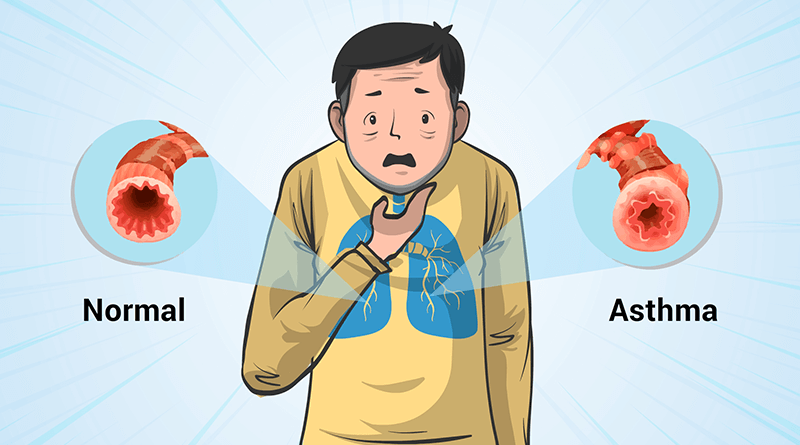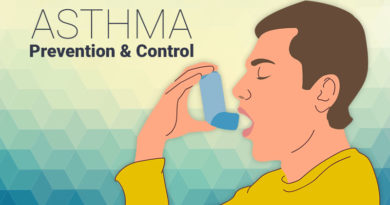What is Asthma?
Are you experiencing frequent shortness of breath? Hearing a whistling sound in your chest while breathing? You may have asthma. Asthma is a chronic lung disease, that inflames and narrows airways and produces extra mucus, which blocks air from entering or leaving the lungs. This is a prevalent long-term disease for children, but adults can have asthma too.
Here are some interesting facts about Asthma:
- Asthma affects 300 million people globally.
- Every year about 250,000 people die of Asthma prematurely around the world.
- 80% of Asthma deaths occur in low-income countries.
- It is estimated that asthma will grow by more than 100 million by 2025.
An asthma attack can be a terrifying experience. It may feel like as if an Elephant is sitting on your chest or you are trying to breathe through a straw. You struggle to take a full breath. During an asthma attack the muscles around your airways get tightened, the lining also becomes swollen or inflamed, and more than average amount of mucus is produced.

Corporate Wellness App
CircleCare
Asthma causes the bands of muscle around the airways to become narrow. This makes it hard for enough air to pass through and for the person to breathe normally. It usually happens because of some triggers, or factors in the environment that cause a reaction.
Asthma also causes mucus-making cells inside the airways to make more mucus than usual and narrow the airways. During the oxygen fails to enter into the bloodstream and also the poisonous carbon dioxide could not leave the lungs and cause difficulty in breathing.
A variety of factors triggers different types of asthma. Some people experience occupational asthma, which is generally triggered by the environmental conditions around work area like chemical fumes, dust or other pollutants in the air. Some people experience shortness of breath during exercise as well.
Almost all asthma deaths are preventable by managing the condition. To handle the situation, a patient has to follow his medical regiment, take regular medications, follow a healthy diet and stay physically active.









Pingback:Symptoms of Asthma - Signs of Asthma | CircleCare
Pingback:What are the treatments available for Asthma? | CircleCare